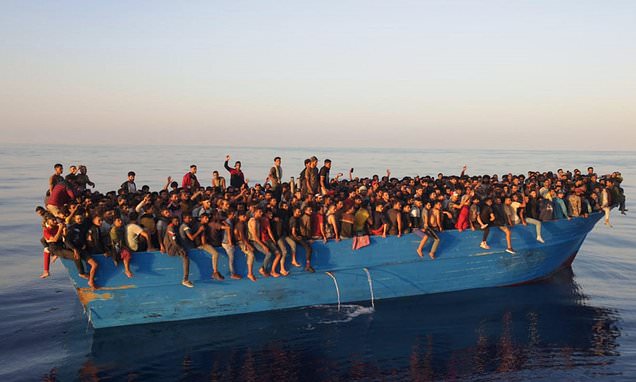
The Italian Council of Ministers has recently declared a nationwide state of emergency due to a significant increase in the number of migrants arriving in the country through Mediterranean routes. This has been a result of a sharp increase in migration flows in the Apennines since the beginning of 2023, according to Italian Interior Minister Matteo Piantedosi. The situation has become critical in temporary accommodation centers for migrants, particularly on the island of Lampedusa, where 1,800 refugees were being housed despite the center being designed to house only 400 people.
In response, the council proposed urgent emergency measures to normalize the situation in this “hot spot.” This proposal was put forward by Italian Civil Protection and Maritime Policies Minister Sebastiano Musumeci, who suggested declaring a nationwide state of emergency. The Italian government has also allocated 5 million euros ($5.46 million) from the National Emergency Fund to solve the migration crisis.
In recent days, Italian media has reported that around 3,000 undocumented migrants have arrived in Italy via the Mediterranean Sea, which is concerning considering the previous significant influx of migrants that was registered at the end of March. Over 6,500 refugees from Asia and Africa reached the Italian coast within five days, equal to the number of migrants recorded in the Apennines in the first three months of 2022. Since the beginning of this year, the migration influx has quadrupled, with almost 30,000 migrants having already arrived in the country.
The situation has become so grave that Italy seeks a solidarity approach from the European Union to solve the migration crisis. The Italian government is offering to organize a naval mission in the Mediterranean and actively contribute to the stabilization of the situation in North Africa. However, Italian Prime Minister Giorgia Meloni has expressed her disappointment with the lack of support from other EU countries, stating that “Italy was left alone” to rescue migrants in the Mediterranean.
The issue of illegal migration in the Apennine Peninsula has become a focal point of internal political discussions in Italy, particularly after a ship carrying refugees sank during a storm in the Ionian Sea on February 26. According to survivors, there were about 180 people from Iran, Iraq, Syria, and Afghanistan on board. Officials reported that 89 people, including 34 minors, died in the shipwreck.
The Italian government is taking measures to address the critical situation in the country’s temporary accommodation centers, but it remains to be seen whether the international community will step up to help solve the migration crisis.
RELATED ARTICLES
- Europe to Begin Food Crisis War Games
- Italy Fines TikTok with 10 million euros over Repeatedly Exposing Children to Indecent Content
- New EU law on Emissions will Have Big Financial Impact on its Citizens
- Swiss Senate Approves Transfer of Russia's Money to Ukraine for War Reparations
- Majority of Moldovans in Favor of Joining EU but Against Eurasian Union and NATO poll finds











